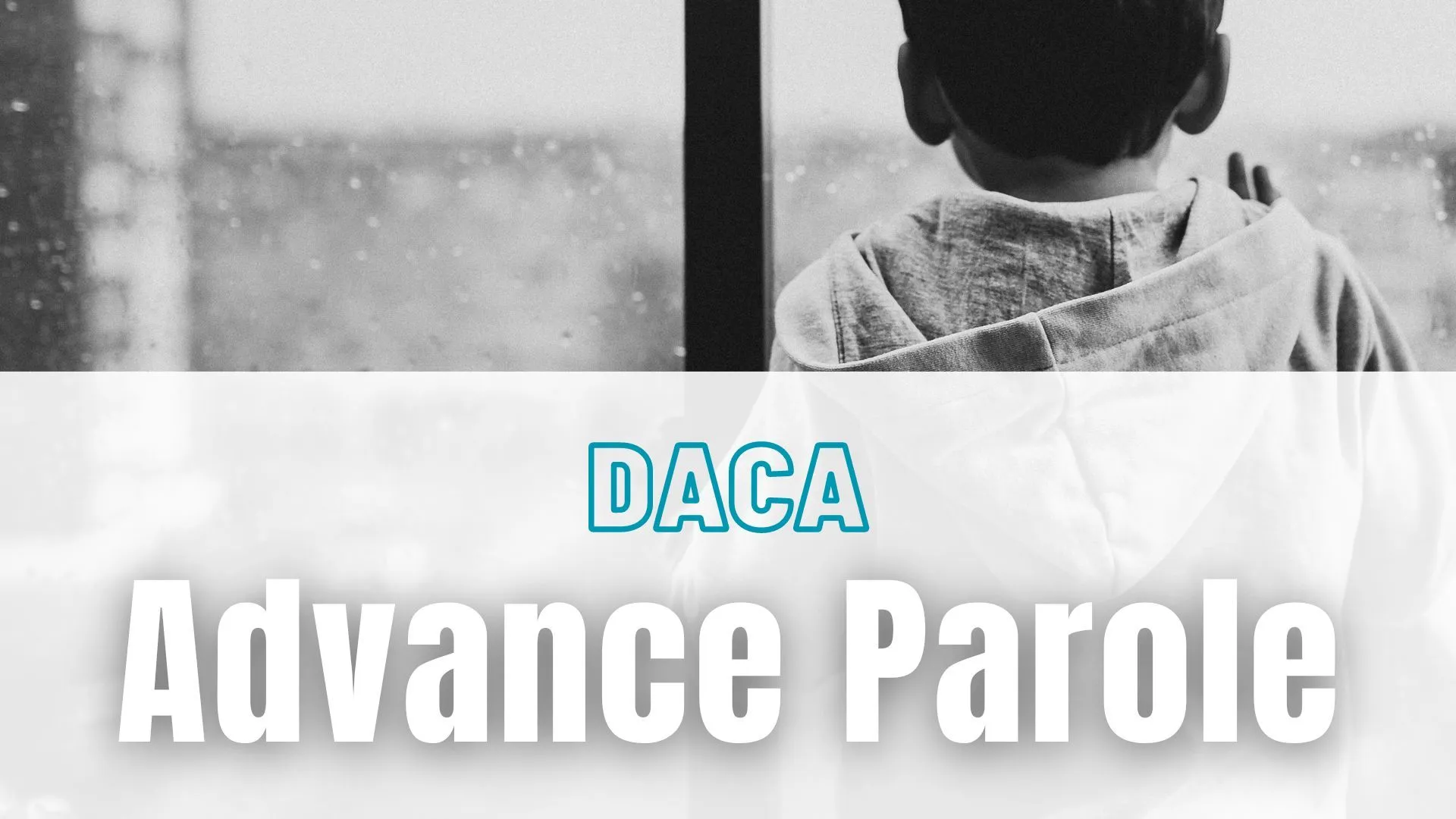Advance parole is a process in US immigration law that allows immigrants to leave the United States and re-enter lawfully. If you are a recipient of Deferred Action for Childhood Arrivals (DACA) and have an emergent need to travel outside of the United States, you may be eligible for Emergency Advance Parole. Advance parole requests are evaluated and approved by U.S. Citizenship and Immigration Services (USCIS). Applicants should note that advance parole is a discretionary policy and not everyone who applies will be accepted.
Individuals who are seeking to apply for advance parole should contact an expert immigration lawyer to receive a consultation and help with submitting their advance parole request. Keep reading to learn more about eligibility and the application process.
Who is Eligible?
DACA holders can apply for advance parole to travel for three reasons: educational, employment, or humanitarian. Urgent humanitarian reasons may include attending a funeral overseas, visiting a sick relative, caring for an immediate relative, and other compelling and emergent situations. Employment reasons include traveling for a work assignment from your US employer or attending a work conference. Educational eligibility criteria for travel include study-abroad programs or overseas academic research.
Receiving emergency advance parole has an additional benefit beyond being able to travel. Upon re-entering the United States without an advance parole document, you will be inspected and admitted into the United States by CBP. This means that you will have a documented and valid entry into the United States, which could open the door to changing your status for receiving a green card and beginning the path to citizenship, in some circumstances.
Applying for emergency advance parole is a fairly straightforward process. Here’s how to do it:
- Request an InfoPass appointment with USCIS. You or your attorney will call USCIS and be persistent until you speak to a live human, ideally a Tier-2 supervisor. Once you reach a customer service representative, you will explain your need for emergency travel and will likely be scheduled for a callback later that day (or within 1-2 days) from a T-2 officer. Once you receive your callback, you must explain your need for the InfoPass appointment. If the officer approves your request, they will schedule the appointment at your local USCIS field office.
- Arrive at your appointment at your specified time.
- Bring all required documents.
What you will need to complete and bring to your appointment:
- Form I-131, Application for travel document (Note: you can file this form in person at your InfoPass appointment);
- supporting evidence of the emergency (bring lots! This may include medical records, doctors letter(s), photograph of sick relative, death certificate, etc. Make sure to provide English translations, if applicable);
- evidence of relationship to the person you’re visiting (i.e. birth certificate), if applicable;
- the filing fee of $575;
- two passport photos; and
- your passport.
Some field offices will not consider emergency advance parole more than one or two weeks in advance of the person’s planned departure, and some ask for proof of airline tickets to consider the application. It is vital to add sufficient evidence of the urgency of travel, such as official documentation of the hospitalization of a family member for a serious medical condition or an impending surgery.
DACA recipients who are seeking to travel due to an emergency can call USCIS at 1-800-375-5283 to set up an appointment at the local USCIS field office to apply for Emergency Advance Parole.
What to Expect?
You will meet with a USCIS adjudicator and review your application at the USCIS field office. They may tell you that they need to check with their supervisor before they can approve your application. That’s okay — you will get a call back pretty quickly, maybe the next day, confirming that the emergency advance parole is going to be issued. You will then need to go back down to the field office to pick up your advance parole document. You are then able to travel outside the United States, as long as you have your approved document and valid passport.
Many DACA recipients have traveled on advance parole without issue, but you should always be very careful that there are not any other reasons that would prevent you getting back into the United States smoothly, like a criminal record. It’s a big deal to cross the US border at this stage even with the advance parole, so you must make sure everything is very clear. International travel with DACA should only be considered in true emergencies and urgent situations.
What If My Advance Parole Application Gets Declined?
Rejection of your advance parole application will not affect your immigration options. If you are not approved for advance parole, USCIS will not take any further action with your immigration case.
However, applicants who are declined for advance parole will lose their filing fee. Although a denial will not affect your immigration options, applicants should note that the data submitted with your advance parole request will become part of your immigration file. So, it is important to speak with an immigration attorney to get assistance in requesting advance parole and ensuring the right evidence is submitted.
Things to Consider Before Traveling on Advance Parole
It is vital that all who are seeking to travel on advance parole are well informed and screened to ensure they can reenter the United States successfully. Although approving a parole is the first crucial step, it does not guarantee that an individual will be permitted to reenter the country. Before traveling it is vital to know the updated COVID-19 policies of the country you are moving to and requirements for reentering the United States. Make sure you have adequate time granted for travel on advance parole, as well as time left on current DACA, to accommodate delays in return, like getting sick, canceled flight, etc.
Speak to an Immigration Attorney
Speak to an attorney and disclose all immigration and criminal or citation history (interactions with law enforcement officer, immigration officer, or an immigration judge) to learn if there are any risks associated with travel. To find out how we can assist you, contact us at (503) 427-8243, or you may schedule a consultation online by clicking here.







